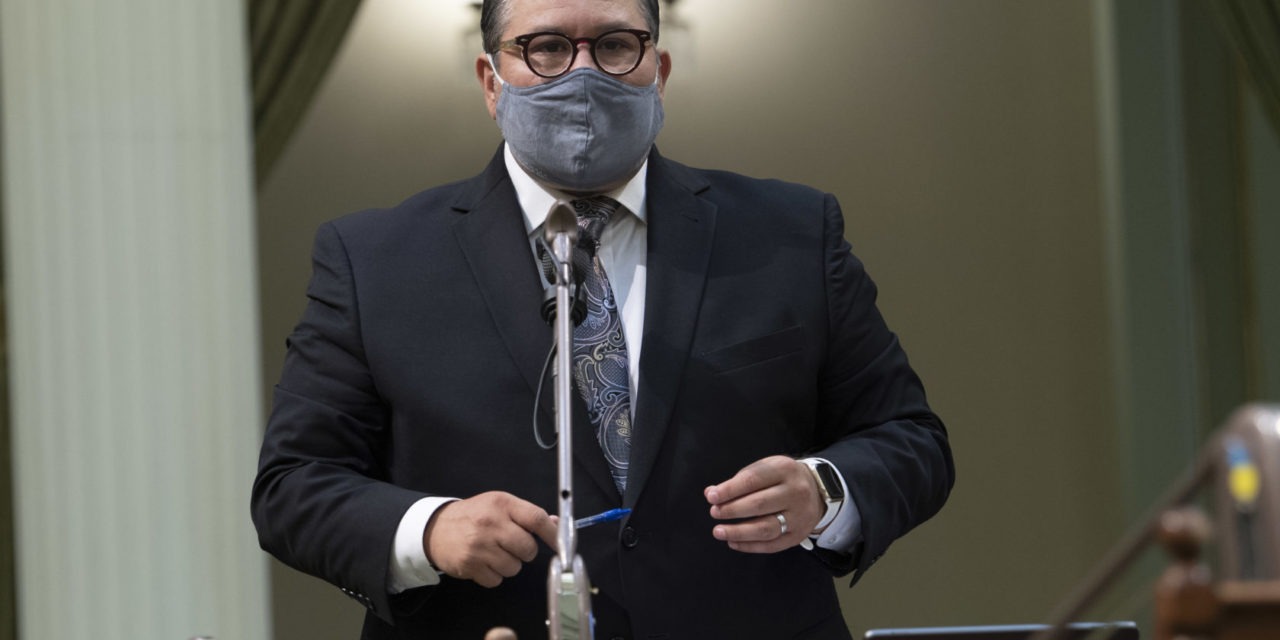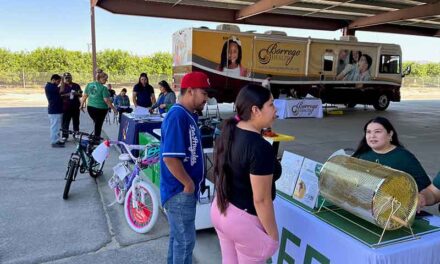Informational hearing focused on reality of distance learning and internet access for California students
SACRAMENTO – The coronavirus pandemic has shined a bright light on an old problem that has gotten worse during the pandemic. There is a digital divide that is leaving many people, particularly minority and low-income earners, without internet access.
The Public Policy Institute of California reports that 27% of the state’s schoolchildren lack the necessary broadband to attend school remotely. Even worse, 16% of these students have no internet connection at all. For low-income, rural and minority households nearly half are without the needed service, and lack of affordability is a primary reason.
Assemblymember Eduardo Garcia, D-Coachella, maintains internet access isn’t a want, it’s a necessity.
Garcia, an ardent champion of legislative efforts to bridge the digital divide, built on that reputation Wednesday. He and his colleagues on the Assembly Committees on Communications and Conveyance, and Education held a joint informational hearing focusing on the new reality of distance learning and the issue of internet access for California students.
As a member of the Communications and Conveyance Committee, Assemblymember Garcia invited Imperial County Superintendent of Schools, Dr. Todd Finnell, to provide testimony on the unique challenges facing the region and their innovative efforts to expand broadband connectivity. Other expert witnesses included Tony Thurmond, State Superintendent of Public Instruction, and Carolyn McIntyre, President of the California Cable and Telecommunications Association.
“Internet access is a modern-day necessity, yet far too many Californians in underserved rural and low-income urban communities remain stuck on the wrong side of the digital divide. These severe technological disparities predated the pandemic and have become all the more urgent now, especially for our students and teachers,” Assemblymember Eduardo Garcia said in a prepared statement. “This issue will be an absolute legislative priority for me moving into next year. California must step up and do more to support our schools, students, and their families. I remain committed to advancing public policy that will address our immediate internet and educational concerns as well as the broadband infrastructure needed to achieve equitable, long-term solutions.”
Garcia, who also serves on the California Department of Education’s Closing the Digital Divide Task Force, has already begun convening working groups to explore legislative solutions. He continued on to say, “This joint hearing was extremely important to position my colleagues for next year, and I appreciated the opportunity to include one of our local superintendents to highlight the importance of regional partnerships and the strides we have been making to bridge the digital divide in our district.”
Long before this pandemic struck, the Imperial County Office of Education (ICOE) was already progressing local solutions to help students to reach their full academic potential. Recognizing the need to bridge the Homework Gap, the ICOE teamed up with local school districts to launch BorderLink, an infrastructure initiative that will help ensure equal access to internet services throughout the county.
“As we look toward solving the gaps in access and opportunity across California, I want to emphasize the role that our public agencies, and specifically County Offices of Education, can play in building, maintaining, and providing Internet services in our state. California is a diverse state with many challenges. In order to solve the Homework Gap for our more than 6 million students, it will take a range of approaches to meet this challenge,” said Dr. Todd Finnell, County Superintendent of Schools, ICOE. “Imagine the possibilities if all students were using digital resources and advancing their education well-beyond school hours. Imagine if teachers were able to assign projects that require rich investigation and online research without worry of students who may be disadvantaged due to their lack of internet connectivity at home. This is our vision, the importance of which has been magnified due to the current pandemic and the need to support rich, robust Distance Learning for all students.”
In 2017, Garcia passed AB 1665, the Internet for All Now Act, which made improvements and extended $300 million into the California Advanced Services Fund for broadband infrastructure projects.
Image Sources
- Assemblymember Eduardo Garcia: Assemblymember Eduardo Garcia







